Oscar Wilde: Social and Sexual Commentary in “The Harlot’s House”
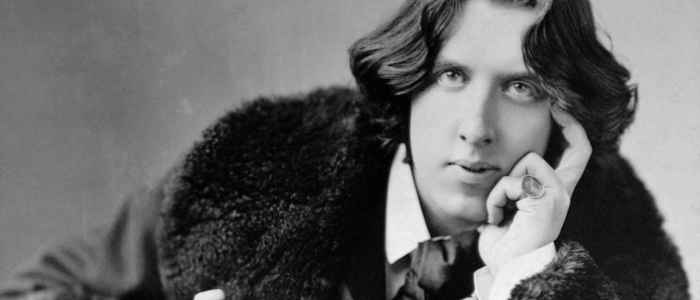
When we think of Oscar Wilde, we tend to think of the snarky, clever, and witty creator of such classic pieces of literary social satire as The Importance of Being Earnest and The Picture of Dorian Gray. We know him for his openly flamboyant “dandy” persona, and for the scandal that erupted around the reveal that London’s prized playwright was, in fact, consorting with young men rather than his own wife. We adore his one-liners; some of us are fortunate enough to visit Paris and kiss his grave that, although now surrounded by glass, is speckled with lipstick stains. But for all of this, the great Oscar Wilde was also a prolific poet–and he used his poetry to comment on and expose the hypocritical reality of the social and sexual regulations placed upon London’s people by its patriarchal heads of authority.
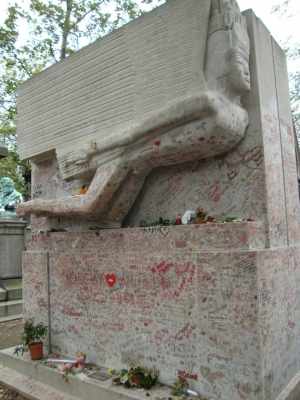
One such poem was The Harlot’s House, published in 1885 in The Dramatic Review. In the eyes of 1890s London society, prostitution represented the center of urban depravity through its contribution to the ethical and physical corruption of civilians. In this poem, the middle or upper class male narrator and his female companion go slumming through the poor areas of London for their personal enjoyment. The narrator’s impressions of the sexually unbridled activity within the harlot’s house resonate with Victorian society’s prejudice toward individuals who live outside of both societal and sexual norms, and Wilde seems to use his narrator as a mouthpiece for society’s reaction to brothels.
Prostitutes as Supernatural Beings
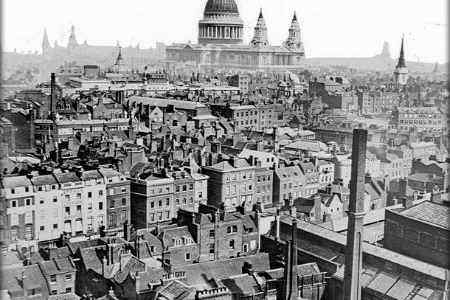
From the first stanza of The Harlot’s House, the narrator responds to the socially liberated environment of the brothel through metaphors describing the women as supernatural and ethereal. As members of the middle class or bourgeoisie, the couple “loitered down the moonlit street,” strolling and ambling through the debauched areas of the city for their own personal curiosity and nothing more. The first sensory information that the narrator receives about the prostitutes and their customers is not sight, but the sound of the “tread of dancing feet.” This indicates only the sound of motion rather than the sight of physical men and women. In addition, the narrator describes these human beings as “shadows,” “ghostly dancers,” and “slim silhouetted skeletons.” This only goes to de-emphasize their physical existence while raising them to a supernatural level as creatures that frighten human beings. In an ironic way indicative of Wilde’s humour, through condemning them for living detached from society, the narrator in fact provides the harlots with authority over the human world through their ability to shape-shift and prey on men—especially through sexual temptation
Prostitutes as Objects without Gender
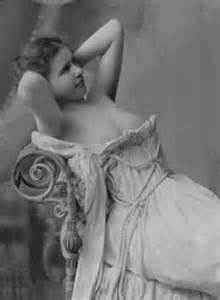 Almost paradoxically, while the narrator does suggest that the harlots are closed off from London society because of their sexuality, he also describes them as objects that totally lack gender. Wilde achieves this tone of objectification through the narrator’s shift in pronouns used to describe the fallen women. First, he details the sight of a harlot holding a lover “to her breast,” but then when a woman crosses the threshold between her world of social disobedience and London’s world of social customs, Wilde describes the scene in the following way:
Almost paradoxically, while the narrator does suggest that the harlots are closed off from London society because of their sexuality, he also describes them as objects that totally lack gender. Wilde achieves this tone of objectification through the narrator’s shift in pronouns used to describe the fallen women. First, he details the sight of a harlot holding a lover “to her breast,” but then when a woman crosses the threshold between her world of social disobedience and London’s world of social customs, Wilde describes the scene in the following way:
Sometimes a horrible marionette
Came out, and smoked its cigarette
Upon the steps like a live thing.
Here Wilde replaces any form of gender specification with “its,” emphasizing the narrator’s close-minded judgment of and anxiety towards women who exist outside of social boundaries. Victorian London rejects their social agency and individuality, labeling them unjustly as socially extinct.
In contrast to the narrator’s previous allusions to the women as ghost-like, he goes on to view them as tangible machines and puppets controlled by the wires and fingers of society. He equates the fallen women with machines in that they are “[l]ike strange mechanical grotesques” and “[l]ike wire-pulled automatons.” Mechanical inventions must be “wire-pulled” or governed by some outside entity—in this case, by the biased ordains of society. Wilde uses the language of puppetry by describing a real woman as “a horrible marionette” to emphasize his social purpose; Victorian society, in all its hypocrisy, relishes in waging power and control over prostitutes as puppets in their play.
Patriarchal Limitations on Love and Sexuality
In addition to the perspectives on the “fallen women” themselves, Wilde also includes the narrator’s perspective on those who visit the whorehouse. The first time that the narrator refers to the men who visit the harlot’s house occurs when one of the women “pressed/ A phantom lover to her breast.” The modifying word “phantom” placed in conjunction with “lover” implies that these men could have been what the narrator views as “real” or “true” lovers, presumably like himself, but the satisfaction achieved through the love of a harlot is false. To society and the narrator, the enjoyment of sexual love for its own sake (a reason for celebration in Wilde’s social and aesthetic circles) represents only the shadow of the love he, the narrator, believes he shares with his female companion. The narrator says to his lady-friend that “The dead are dancing with the dead,/ The dust is whirling with the dust.” As this assertion shows, male-dominated Victorian society maintains that prostitution is socially dead, and so discards its unbridled sexuality as morally sterile in an effort to protect innocent female society from such corrupting sexual beliefs.
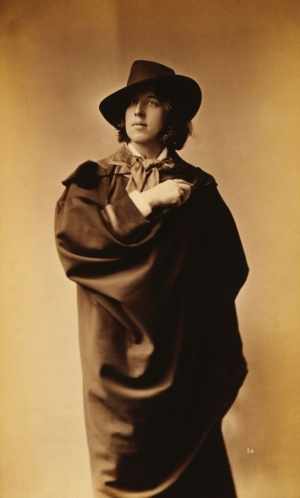
In Wilde’s prolific body of work, his poetry is perhaps the least known of the genres, and yet Wilde the poet still employs the same cleverness and tongue-in-cheek humour in dishing out his social messages as he does in his short stories and plays. Each description of the prostitutes, the house, and the narrator’s female companion carries the weight of a Victorian aesthete’s critique of bourgeois society’s discrimination of which he himself is a victim. Through his social and sexual criticism of the narrator as society’s disciple, Wilde emphasizes his view that Victorian London lives in fearful prejudice toward sexual pleasure that breaks orthodox boundaries and exists, not for some ideal purpose, but simply for its own joy in existing.
What do you think? Leave a comment.
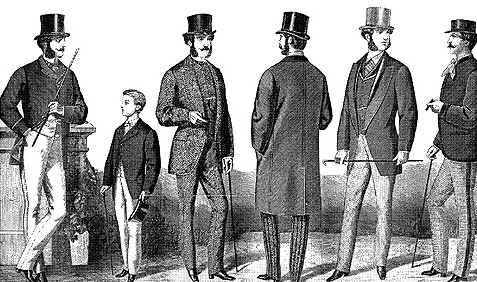











Fantastic introduction to Wilde as a poet. I love discovering new aspects of an author and you have done a good job of showing that his poetic side was just as creative as his prose side.
The guy was undoubtedly a great wordsmith and wit, but the one book I read of his, The Picture of Dorian Grey showed to me that he couldn’t write relatable character or even interesting narrative. Maybe that wasn’t his intention; who knows? But I felt every character, especially Dorian Grey, to be horribly shallow arseholes. I also don’t especially like his propensity for melodrama. I did get the feeling this was a playwrite writing a novel. I often felt his characters shouted, or “cried!” as he would have it, rather than relate in any credible or meaningful way.
I know the veiw I hold of him isn’t a fashionable one, but as inate a wit he undoubtedly was, I don’t feel he was an especially good writer…
I think you might have snatched the walking stick and left the handbag, old fruit.
Dorian Gray isn’t meant to be relatable. He’s the epitome of monstrous vanity, immorality, and cowardice. Calling him “horribly shallow” is like calling Hamlet “annoyingly neurotic.”
And your view isn’t unfashionable as such, but it might be taken seriously if your spelling were a little better.
^ Wow what a prick this guy is!
Wilde was a brilliantly quotable mind, and perhaps Dorian Gray should be read more as an exercise in aesthetics and philosophy than a typical novel.
Brilliant poetry, stories and plays.
As a fan of Oscar Wilde, this has made my inner geek very happy.
i can resist everything except misquoting Oscar Wilde
Interesting. I’m not good at analyzing poems, so I admire that you were able to eloquently decipher Oscar Wilde for the audience. Great job!
This is a stunning piece. A perfect harmony of history, literature, and analyzing of social norms. Well done, well researched. Always good to look at our past, and see how far we have grown, or the opposite.
He is one of the most interesting and witty filled wordsmiths i’ve come across.
Certainly in written matter outside the computer and even in film (uncredited) Oscar Wilde seems to be the most quoted. Never were truer words spoken and not just because they are witty or amusing.
Quote time. My fav:
“We are all in the gutter, but some of us are looking at the stars.”
Love these gems:
“Wickedness is a myth invented by good people to account for the curious attractiveness of others.” (Phrases and Philosophies For The Use Of The Young)
“It is absurd to divide people into good and bad. People are either charming or tedious.” (Lady Windermere’s Fan)
“I adore simple pleasures. They are the last refuge of the complex.” (A Women Of No Importance and The Picture of Dorian Gray)
“I am so clever that sometimes I don’t understand a single word of what I am saying.” (The Remarkable Rocket)
“You will always be fond of me. I represent to you all of the sins you have never had the courage to commit.”
That one is from Lord Henry in The Picture of Dorian Grey.
‘One should never trust a woman who tells one her real age. A woman who would tell one that, would tell one anything.’
I thought Dorian Gray was brilliant in places, but rather baggy and sagging in the middle. All those dreary rambling lists of “decadent” aesthetic stuff! Somehow, for me, it all added up to less than the sum of its parts.
Oscar Wilde is for me the greatest writer of all time. I even have a tattoo of a rose as a mark of respect for his short story “The Nightingale and the Rose.” I know a lot of people will sneer at my cheesiness, but every time I read Wilde I get a sense that the world is more beautiful than the pessimists claim. The only other thing that does that for me is music.
I don’t agree that Wilde was the greatest writer, but it’s so great to see how much writers and their work can affect people in a positive and optimistic way!
I just love everything he did. Fantastic wordsmith with a razor wit.
Great man and a wonderful writer.
Oscar Wilde is truly awesome.
Wilde didn’t really know how to write novelistically
When I was 17 and living away from home for the first time, I devoured The picture of Dorian Gray. I was still in secondary school mode, and got myself a notebook to write out my favourite lines from the novel. I had almost completely transcribed the first 6 or 7 pages, when it occurred to me that I could just read and enjoy. And I did!
I must admit, when I read books I still write down aphorisms and sentences which I love. For instance, I’m reading Wittgenstein at the moment and his claim that philosophers have “to show the fly the way out of the fly-bottle” is just beautiful.
Oscar Wilde – My personal hero.
Oscar Wilde is truly awesome, and always quotable, as proved by this awesome Wilde quotes throwback: https://prettyandwittyandbright.wordpress.com/2014/12/23/looking-back-wilde-quotes/
Dorian Gray is a good example of a novel that is great not only because of itself but because it has become embedded in both culture and consciousness. Great novels aren’t necessarily only those with great writing, plotting and construction but which come to speak to us and for us.
There is an enigmatic truth in this affirmation that I am unable to quite understand.
Easily one of the wittiest and most beautiful writers I have ever had the pleasure of ingesting.
Oscar Wilde, targeted and destroyed in an hysterical witch-hunt of late Victorian morality.
I find it fascinating that Wilde is able to capture with perfection the reasons and logic of a society that is so opposed to him and only seems to exist to deny Wilde’s existence. And yet he transforms this hate towards him in wonderful pieces of art that are a mirror to society’s behavior, and scares and shames those who look at it. He should be fearful of society, and yet he menaged to be feared.
The way that the prostitutes are described intrigues me. I think they are de-emphasized as humans as to show how some people in society see people who prostitute. Wilde had a way to write that conveyed his messages through images.
The very title of Wilde’s poem attributes agency and power to the women of the night. Thereby, as owner and head of this home, and as the poem presses, the harlot’s way is the final arbiter of mores and she serves as an honest if not more just model of “pure and true” London society. By conduct and desire, without the Harlot, there would be no patriarchal and male-dominating, and thus gender vulnerable, Victorian culture.
I watched The Picture of Dorian Gray, thats the only work by Oscar Wilde I know so far, but after reading this article I’m interested in looking into his other writings.
I notice a little bit of a theme in his works so far, controversial matters, judgement and prejudice, temptation, pleasure and punishment.
Thank you for your insight, I look forward to enjoying his other pieces.